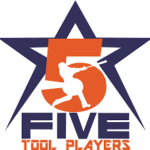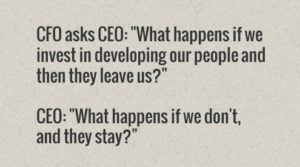I spent a lot of time watching baseball and football games this weekend. As I enjoyed some of the tension filled moments in these contests I thought a lot about the importance in coaching. One right or wrong decision makes all the difference in the final result, and prior to making the call, the head coach or manager leans on a lot of different people for professional advice.
You probably know this already but in case you don’t, the existing major league baseball playoff teams each employ between 9-12 coaches for their 25 main roster. In the NFL, the amount of coaching support doubles for teams due to having to manage 53 players. An NBA team which has a smaller roster still has support provided by 6-8 coaches.
Sports organizations invest a lot in coaching because they understand that it’s key to strategic decision making and for getting maximum performance out of players. If bad decisions are made and players don’t perform, the team doesn’t win. If the results aren’t good, neither are ticket sales, ratings or sponsorship dollars.
Now let’s take a look at how most sports radio stations support their on-air performers. In most top 50 markets, a station has a program director and a few capable producers. Rarely do you find stations with a PD and APD who doesn’t work on a show. If you have that type of arrangement in your building thank your lucky stars because you’re the exception. Things are even more challenging in smaller markets where many stations don’t even have a program director. If they do, they’re likely doubling as a host, sales person or the owner.

In a number of these cases, producers in the building double up as the board op. In some situations, they deliver on-air updates too. Producer jobs are often filled by younger people working their way up in the business, not making a ton of money. Since they haven’t had the experience of leading an organization, they’re expected to support the host, not necessarily coach them. Ironically, the major market brands who utilize veteran producers, tend to generate better results and earn more buy in from talent.
But most radio companies don’t like to spend a lot on the producer position. If you compared the situation to professional sports, it’d be equal to a professional franchise employing a Head Coach and a few assistants, except most assistant coaches have experience, and many have previously led franchises. The coaching staff’s experience, intelligence, and strategic abilities help them earn immediate respect and trust from the players. They can also see things that less experienced professionals can’t, helping their players get an edge, which can sometimes affect the outcome of a game.
Step back for a minute and think about your talent. They are the equivalent of the Quarterback, Running Back, 1st Baseman or star Pitcher. They have natural skill and are vital to your brand’s ability to drive ratings and revenue, but no matter how gifted they are, even they need instruction, direction, and ideas to get the most out of their abilities.
When they don’t get it, what happens? They look for other opportunities. They develop a negative mindset and tell anyone who will listen how bad their place of employment is. Sometimes they’ll even confront management and speak their mind, creating tension with superiors. But shouldn’t they expect to be supported and pushed to be their best? If they are the engine in the car, shouldn’t you do everything possible to make sure the engine lasts awhile?

If you’re a radio traditionalist you’ll probably say ‘but isn’t that the PD’s job?’ The answer of course is yes, but that’s due to lack of knowledge, poor job design, and an unwillingness to invest in support staff. Allow me to expand on that.
There are many in higher positions who haven’t worked in a programming department, and don’t know all that’s involved with managing a sports station. Due to that limited knowledge, they aren’t able to evaluate all aspects of how the brand leader runs the programming department. That leads to focusing on simpler things like ‘how the day to day issues were handled, was help provided to all departments, were costs kept under budget, are the station’s ratings good, and is he/she a good person.’ If all of those boxes are checked, they consider the programmer effective at his or her job.
But how can you place your faith in someone to lead one of your company’s most important departments if you don’t know how it runs, what they’re strong at, or how they operated at their prior place of employment? Shouldn’t you know if the PD can help talent improve at delivering on-air monologues, powerful storytelling or guiding interviews? If they have creative ideas and can keep a staff focused on talking about the things the audience values most? If they’re personnel recruiters? Staff Motivators? Ratings analysts? Event creators and organizers? Sales and Marketing leaders? Strong imaging writers and producers? Digital and social experts? Intern and PT staff trainers? Contract negotiators? Website writers and/or editors? Podcasting strategists? Audience researchers? Clock designers and schedulers?

That sounds like a lot right? Well, it is. And those are just a number of the things a programmer has to do. I didn’t mention listening to the actual content, meeting with the staff to help them grow, interacting with the audience, managing up to keep corporate bosses happy, and studying local competitors to make sure the brand doesn’t fall behind. They’re of course supposed to do all of this too while everyone in the building bursts thru their door or blows up their cell phone looking for instant answers to their daily issues.
If you look at everything I just laid out, it’s easy to see why PD’s can’t be effective at every area of their jobs. How could they be? They don’t have enough time or support to do it all. Some PD’s are even asked to run 2-3 stations at a time. I don’t care how good the programmer is, they’re going to miss things when put into these type of situations.
But the same thing could be said for the GM in each building. So many are tasked with overseeing 3-5 stations in a building, taking local business meetings, participating on corporate calls, meeting with employees, and growing revenue. How are they supposed to analyze the work being done by their programming leaders, and help them grow professionally when a mountain of tasks sit on their plate too?
Inside most radio stations PD’s are asked to handle a lot. If they need help, they’re supposed to rely on lesser experienced staff or find answers on a monthly programming call with others in the company who aren’t in tune with their daily challenges. If that doesn’t work, they tell you to call an industry friend for advice. But who’s helping the the PD improve? This is especially concerning for first time programmers who get handed the keys to an operation, and want to do the job well, but don’t know if what they’re doing is right or wrong.

I wonder sometimes what would happen if radio groups ran professional sports teams. I can’t help but think that the first area they’d cut would be the coaching staff. Never mind that they’re responsible for the brand vision, in-game decision making, and leading the organization’s most important asset – the players. One person should be enough to handle everything right?
I read a lot in the trades and listen to industry leaders at conferences tout radio’s value versus television, print, and digital media, and how we should earn similar investments from advertisers, but when it comes to supporting our content people, we don’t offer the same help. Take a look at how many are involved in filming a movie. Or how many contribute to the New York Times’ newsroom. Or how many play a role in making SportsCenter a nightly success for ESPN. Do you think that success is created by a handful of people?
I talked last week to an industry friend who programs a sports station and was very frustrated. He felt his GM cared little about programming, only the sales department, and as a professional he felt stagnant. He wanted to attend the BSM Summit to gain a few things to take back to his building but thought his GM would reject it because it involved an expense. I told him if spending a few hundred dollars was going to cause internal strife then he shouldn’t ask. It’s not worth the headache. But if something that small was an issue, it’d make me wonder about the way they’d handle bigger issues.
Another industry programmer told me last month that he was thinking about leaving the business because the support he receives is nonexistent. His exact words were ‘my boss has no interest in my professional development’. That was followed up by watching another friend and smart industry programmer get left out of key decisions despite doing a great job leading a local brand to strong ratings and navigating some bumpy roads. As a result, his station made a few questionable moves which have raised further questions.

I went thru two experiences like this myself as a programmer, and have seen and heard a lot more of it since moving into the consulting space. It’s what made me initially hesitant to get into this side of the business. If stations don’t care enough to support their programmers, and judge their value based on the station’s ratings or their salary number then that’s foolish in my opinion.
When employers take little interest in the personal and professional development of their employees, it’s what leads them to consider career changes or seek me out for insight on industry opportunities. Most talent and support staff want to feel valued and important, but the same is true with brand leaders. If you aren’t giving the PD the tools to work with to grow, and meeting with them and sharing specific examples of how they can get better, you’re risking complacency or worse, their future exit.
There are still some great company’s out there who support their sports radio people and take a long-term approach to business (Hubbard, Bonneville, SiriusXM, etc.) but we need more of them. Radio executives may be focused on the bigger picture and all the challenges that await, but taking care of their own and investing in their development is a step that can’t be missed. If you don’t spend a few hours and pennies now to help them, don’t be surprised when it costs you a lot more time and dollars later.

Jason Barrett is the President and Founder of Barrett Media since the company was created in September 2015. Prior to its arrival, JB served as a sports radio programmer, launching brands such as 95.7 The Game in San Francisco, and 101 ESPN in St. Louis. He also spent time programming SportsTalk 950 in Philadelphia, 590 The Fan KFNS in St. Louis, and ESPN 1340/1390 in Poughkeepsie, NY. Jason also worked on-air and behind the scenes in local radio at 101.5 WPDH, WTBQ 1110AM, and WPYX 106.5. He also spent two years on the national stage, producing radio shows for ESPN Radio in Bristol, CT. Among them included the Dan Patrick Show, and GameNight.
You can find JB on Twitter @SportsRadioPD. He’s also reachable by email at Jason@BarrettMedia.com.





